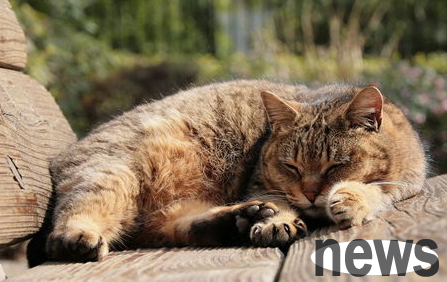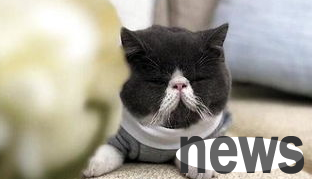The cat's nasal branch is a cat's upper respiratory tract disease induced by the feline herpes virus. The pathogen of this disease is the cat's rhinotracheitis herpes virus. Under natural conditions, it is generally transmitted through t...
The cat's nasal branch is a cat's upper respiratory tract disease induced by the feline herpes virus. The pathogen of this disease is the cat's rhinotracheitis herpes virus. Under natural conditions, it is generally transmitted through the respiratory and digestive tract.
After cats are infected with this disease, the virus can reproduce in the epithelial cells of the nasal cavity, throat, organs, conjunctiva and tongue of the sick cat, and discharge them out of the body with their secretions.

Some cats do not show symptoms after infection, which is called recessive infection, but can still expel the virus. Therefore, healthy cats can be infected with the disease when they are directly exposed to secretions or contaminated instruments, such as feed, water, utensils and surrounding environment.
Cat nasal thighs are contagious and pose a great threat to kittens. Cats infected with cat nasal thighs should be isolated and treated in time.
When the cat is completely cured and there is no recurrence, it is not necessary to isolate other cats. If a cat recurs from time to time after healing, don’t let it get too much contact with healthy cats at home.
How to judge that the cat is healed? Ask the doctor! How long does it take to avoid quarantine after recovery? Ask the doctor! No one knows its condition better than a doctor who treats a cat.
After the owner has come into contact with a sick cat, he must also disinfect it before playing with other cats. Cat supplies, toys, cat nests, etc. at home need to be disinfected regularly.

Pay attention to supplementing nutrition to cats and strengthening their physical fitness.
Cats sometimes experience abnormal tears in their noses, redness, swollen eyes, and even development into conjunctivitis. At this time, you should pay attention to cleaning. If it is more serious, you can also use erythromycin eye ointment.
If a cat has oral ulcers, be careful not only to use topical medications, but also to supplement vitamin B to help recover.
Get vaccinated regularly! Cats who don’t go out also need to be vaccinated regularly! !
If you don’t want to get too many vaccines, you can give your cat an antibody test. If the antibodies in your body are qualified, you can do not need to be injected.